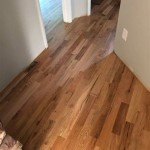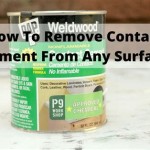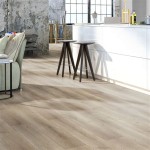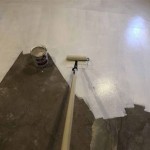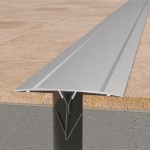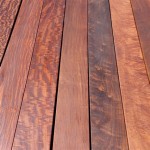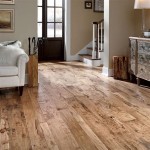What Flooring Is Best for a Basement on Concrete?
Basements present unique challenges for flooring due to their proximity to the ground and potential for moisture. Concrete slabs are a common subfloor in basements, and choosing the right flooring requires careful consideration of factors such as moisture resistance, durability, and comfort.
Moisture Resistance: A Key Consideration
Concrete slabs are porous and can absorb moisture from the ground. This makes moisture resistance a primary concern when selecting basement flooring. Flooring materials that are inherently waterproof or highly water-resistant are ideal. Ignoring this factor can lead to mold growth, flooring damage, and an unhealthy indoor environment.
Durability and Longevity: Standing Up to Basement Life
Basements are often used for storage, recreation, or as additional living spaces. This means the flooring must be durable enough to withstand foot traffic, potential impacts from dropped objects, and the movement of furniture. Choosing a flooring material that can handle these demands will ensure long-term performance and minimize the need for repairs or replacements.
Comfort and Aesthetics: Creating a Livable Space
While practicality is essential, comfort and aesthetics also play an important role in choosing basement flooring, especially if the basement is finished and used as living space. Factors such as underfoot comfort, thermal insulation, and visual appeal contribute to the overall ambiance and functionality of the space.
Several flooring options are well-suited to the specific demands of basement environments. These include engineered vinyl plank (EVP), epoxy coatings, ceramic and porcelain tile, and certain types of carpet designed specifically for basements.
Engineered Vinyl Plank (EVP): A Versatile Option
Engineered vinyl plank (EVP) flooring is a popular choice for basements due to its exceptional water resistance, durability, and affordability. EVP is constructed with a waterproof core, often made of composite materials, and a top layer that mimics the appearance of hardwood or stone. This construction makes EVP highly resistant to moisture damage, making it a suitable choice for basements prone to dampness or occasional flooding. EVP is also relatively easy to install and maintain, making it a DIY-friendly option.
Epoxy Coatings: Seamless and Durable
Epoxy coatings provide a seamless, durable, and moisture-resistant flooring solution for basements. They are applied directly to the concrete slab, creating a waterproof barrier that protects against moisture intrusion. Epoxy coatings are highly resistant to chemicals, stains, and impacts, making them suitable for workshops, garages, or utility areas in the basement. They also offer a wide range of design options, including solid colors, metallic finishes, and decorative flakes, allowing for customization of the basement's aesthetic.
Ceramic and Porcelain Tile: Classic and Water-Resistant
Ceramic and porcelain tiles are classic flooring options that offer excellent water resistance and durability. Porcelain tile, in particular, is known for its low porosity, making it highly resistant to moisture absorption. Both ceramic and porcelain tiles are available in a wide variety of styles, colors, and sizes, providing design flexibility. While tile itself is waterproof, the grout lines can be susceptible to moisture, so it's crucial to use a high-quality grout and sealant to prevent water penetration. Consider using larger format tiles to minimize grout lines and reduce potential moisture issues. Adding an uncoupling membrane beneath the tile can further mitigate cracking due to concrete shifting.
Carpet Tiles: Comfort and Moisture Management
While traditional carpet is generally not recommended for basements due to susceptibility to moisture damage, carpet tiles designed specifically for basements offer a comfortable and moisture-managing solution. These tiles are typically made with a waterproof backing and are designed to allow for airflow beneath, preventing moisture buildup and promoting quick drying. Carpet tiles also provide warmth and comfort underfoot, making them a suitable option for finished basement areas. They offer the added advantage of easy replacement if individual tiles become damaged or stained.
When choosing basement flooring, it’s crucial to assess the basement's specific conditions, intended use, and budget. Considering the moisture levels, traffic patterns, and desired aesthetic will help in selecting the most suitable flooring material for a durable, functional, and comfortable basement space.

What Is The Best Flooring For A Concrete Floor Basement Illinado Llc

How To Choose The Right Floor For Your Basement Gc Flooring Pros

2024 Buyer S Guide Best Basement Flooring Over Concrete

Thermaldry Basement Flooring Systems Waterproof

The Best Flooring Options For Your Basement

What Is The Best Flooring For Concrete Slabs 50floor

Best Basement Flooring Ideas Options Over Concrete

What Is The Best Flooring For A Concrete Floor Basement Illinado Llc

Best Basement Flooring The Warmest Floor Covering Is Cork

Best Basement Flooring Ideas Options Over Concrete
See Also
